How To Protect Outdoor Furniture In Winter
As the temperatures drop, many homeowners ask themselves: how to protect outdoor furniture in winter? Outdoor pieces are built to withstand weather, but prolonged exposure to snow, ice, and freezing rain can still cause damage. Without proper care, wood may crack, metal can rust, fabrics may mildew, and plastics become brittle. By taking proactive steps, you can keep your patio furniture looking beautiful and functional for years to come. This guide will walk you through the best cleaning, covering, and storage strategies to protect your investment during the coldest months.
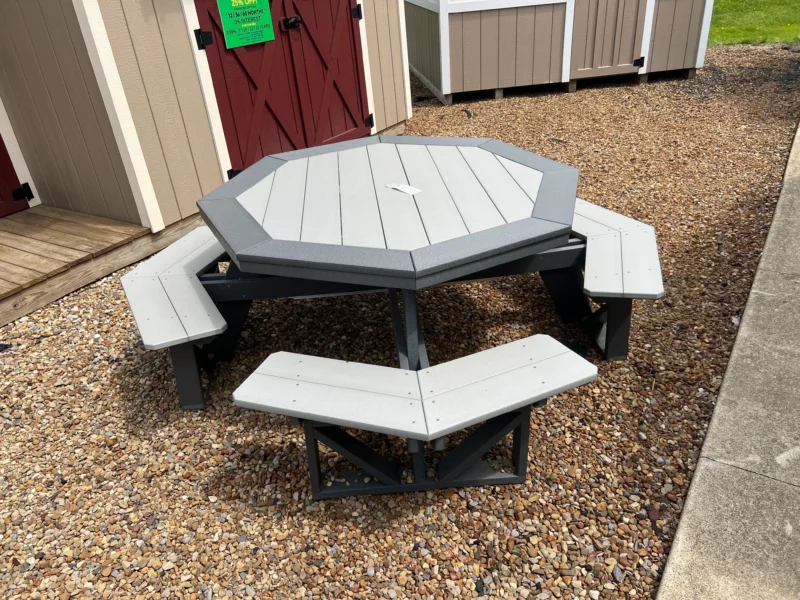
Why Winter Protection Matters
Outdoor furniture is designed to last, but harsh winter conditions accelerate wear and tear. Moisture seeps into wood, causing it to expand and split when frozen. Fabrics absorb water and grow mold. Even durable metals and resins can weaken after repeated freeze-thaw cycles. Knowing how to protect outdoor furniture in winter prevents costly replacements and ensures your patio is ready when spring arrives.
Clean Before Covering or Storing
One of the first steps is cleaning your furniture. Dirt, pollen, or food residue left behind can stain surfaces or attract pests during storage. Use these methods:
- Wood: Wipe with mild soap and water, then allow to fully dry.
- Metal: Wash with gentle detergent and inspect for scratches; touch up paint or coatings if necessary.
- Plastic/Resin: Clean with warm water and dish soap, rinsing thoroughly.
- Cushions/Fabrics: Remove covers for machine washing if possible; spot clean and air dry before storage.
Always allow furniture to dry completely before covering or storing. Trapped moisture leads to mold, mildew, or cracking.
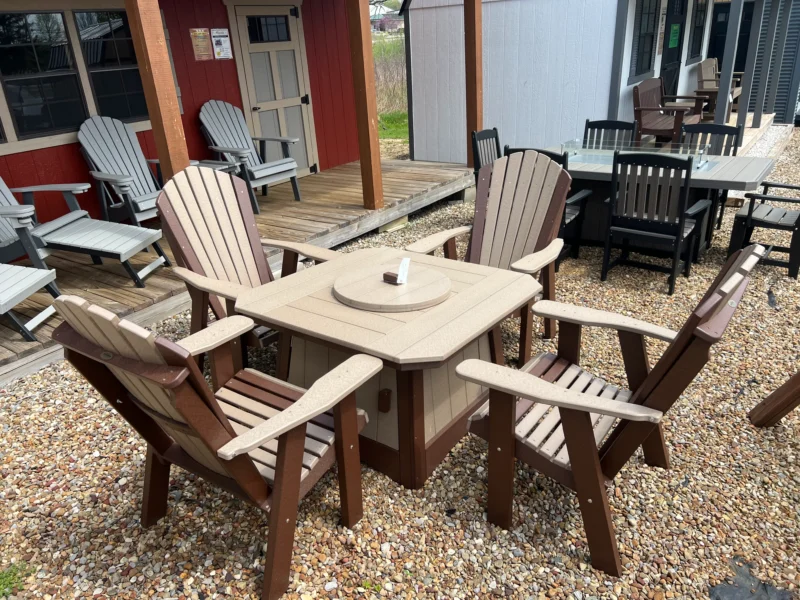
Use High-Quality Covers
Protective covers are essential if furniture stays outdoors. Look for heavy-duty, waterproof, and breathable materials. Breathability prevents condensation buildup, which causes mold and rust. Fit covers snugly to each piece, and secure them with ties or straps so they don’t blow away in strong winds. Quality covers may cost more upfront but save money by extending the life of your furniture.
Store Indoors Whenever Possible
The best method of protecting outdoor furniture is indoor storage. Garages, basements, and sheds provide shelter from snow and freezing rain. Even partial coverage inside a porch or under an awning helps. If you can’t store every piece, prioritize cushions, umbrellas, and lightweight furniture, as they’re most vulnerable to damage.
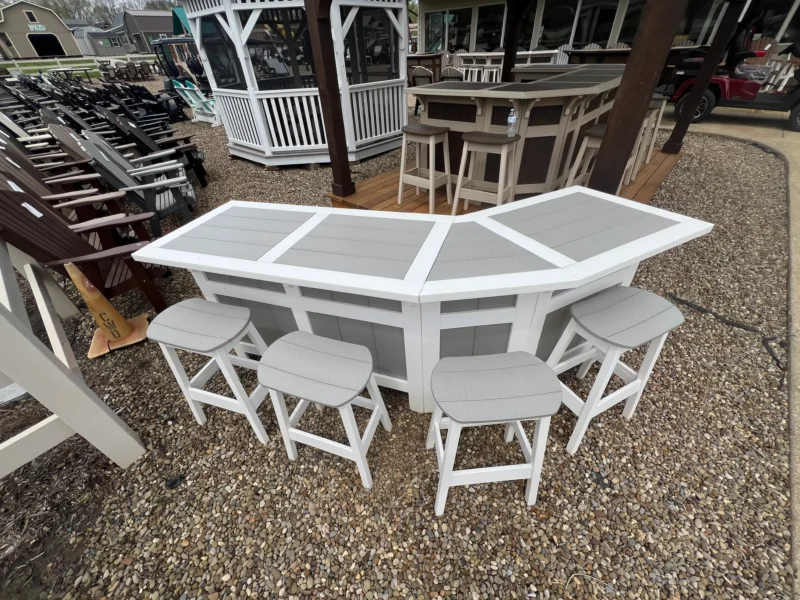
Invest in a Storage Solution
If indoor space is limited, consider adding a dedicated outdoor storage structure. The Garden Shed Greenhouse from Hartville Outdoor Products is a perfect solution. It offers a dry, secure place to store cushions, chairs, and accessories during winter while doubling as a greenhouse or utility shed. Investing in storage keeps your backyard tidy and your furniture safe from harsh elements.
Elevate Furniture Off the Ground
When storing outside, avoid placing furniture directly on the ground. Snow and water can pool around the legs, freezing and causing damage. Use pallets, pavers, or risers to keep items slightly elevated. This small step reduces contact with moisture and prolongs durability.
Protecting Different Materials
Different materials require specific care when learning how to protect outdoor furniture in winter:
- Wood: Apply a sealant or protective oil to resist moisture. Teak and cedar hold up well but still benefit from treatment.
- Metal: Inspect for rust spots and touch up coatings to prevent corrosion.
- Resin Wicker: Use covers to prevent fading and cracking. Store indoors if natural wicker.
- Plastic: Protect with covers; store indoors if possible to avoid brittleness.
- Cushions: Always store indoors in breathable bags or bins to prevent mildew.
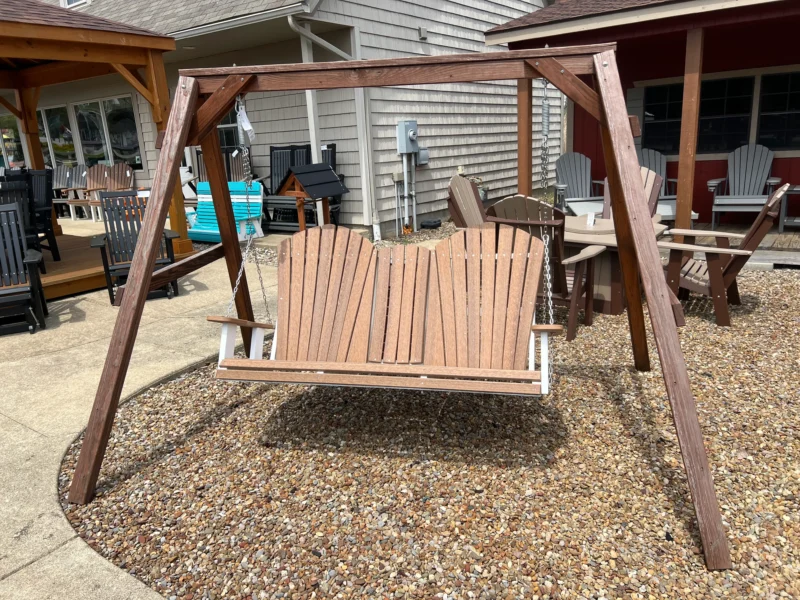
Handle Cushions and Fabrics with Care
Outdoor cushions may be designed for weather, but they’re not built for months of freezing moisture. Always bring them indoors. Wash and dry them before storage, then place them in breathable containers. Avoid sealing them in airtight plastic bags, as trapped moisture can lead to mildew.
Stack and Save Space
Maximize storage by stacking chairs and nesting tables. Place padding between stacked items to avoid scratches. Organized storage prevents damage and makes it easier to retrieve furniture when spring arrives.
Protect Accessories
Don’t forget smaller items like umbrellas, fire pits, or decorative pieces. Collapse and store umbrellas indoors, as winter winds easily destroy them. Remove propane tanks from heaters or fire tables and store them in dry, ventilated spaces. Cover or store outdoor rugs to prevent mildew and rot.
Adjust for Your Climate
Your winter strategy depends on location:
- Mild climates: Covering may be enough protection.
- Snow-heavy regions: Indoor storage or sheds are strongly recommended.
- Coastal areas: Salt accelerates corrosion—double up with sealants and covers.
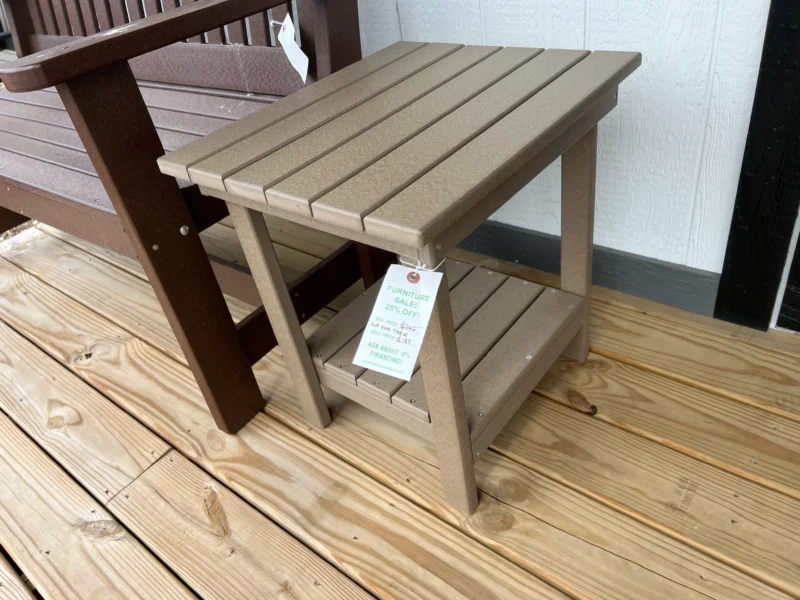
Mistakes to Avoid
When deciding how to protect outdoor furniture in winter, avoid these common errors:
- Leaving cushions outside, even under covers.
- Using cheap, non-breathable covers that trap condensation.
- Forgetting to clean before storage.
- Storing wood furniture while damp, leading to mold and cracks.
The Long-Term Value of Protection
Protecting outdoor furniture each winter extends its lifespan significantly. Instead of replacing items every few years, proper care allows quality furniture to last decades. The time and small expense of preparation pay off with comfort, beauty, and savings over the long run.
Expert Advice
According to Better Homes & Gardens, winterizing your furniture is essential. Their experts recommend cleaning, covering, and storing as the most effective steps to prevent rust, mildew, and fading. Combining their advice with the strategies outlined here ensures maximum protection.
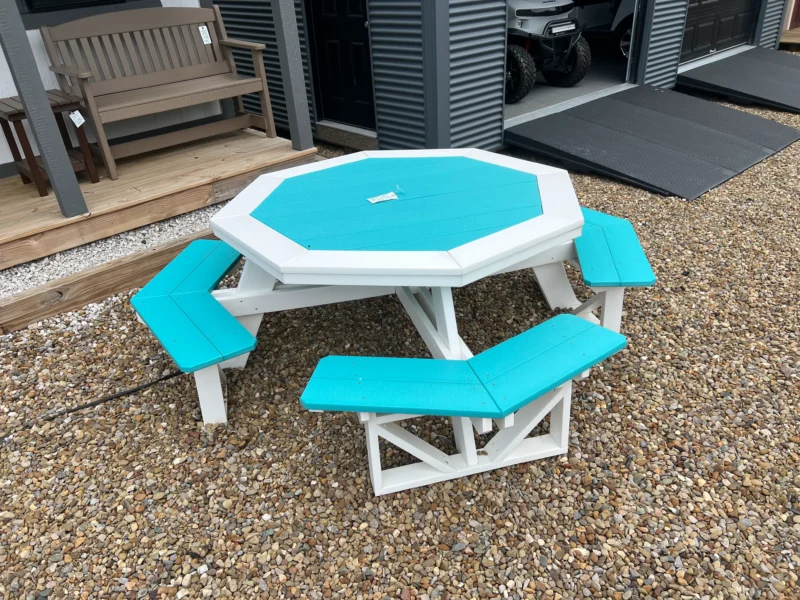
A Philosophy of Care
Just as fine dining focuses on quality over quantity, protecting outdoor furniture is about preserving long-term value. Each step you take—from cleaning to covering to storing—adds years to your investment. Your patio will be more inviting in spring, and you’ll save money by avoiding premature replacements.
Conclusion
So, how to protect outdoor furniture in winter? The key steps are clear: clean thoroughly, dry completely, cover with breathable materials, and store indoors whenever possible. Elevate furniture that remains outside, seal wood, and always bring cushions inside. If space is an issue, invest in a dedicated solution like the Garden Shed Greenhouse. These simple precautions will keep your furniture safe, beautiful, and ready for many seasons of use.
Need help finding the right storage solution or upgrading your outdoor furniture? Contact Hartville Outdoor Products today. Our team can help you protect your investment and create outdoor living spaces that last year after year.
